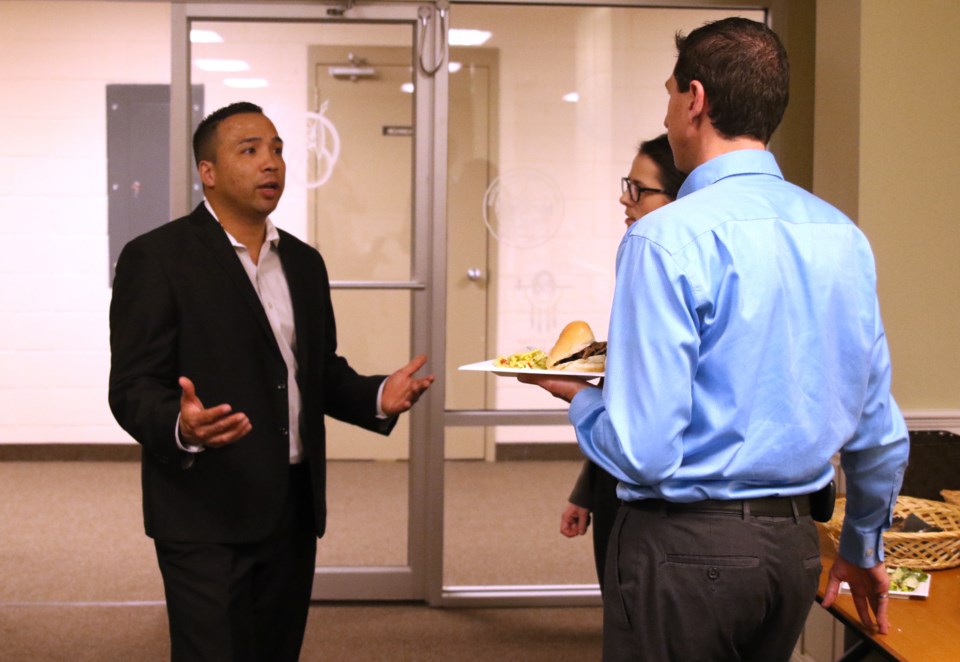THUNDER BAY -- Matawa First Nations representatives are requesting senior levels of government consider the unique conditions of remote Indigenous communities as they roll out national broadband connectivity plans.
The shovel-ready plan to connect Matawa communities with broadband Internet service will apply for around 10 per cent of a new fund the federal government intends to implement across Canada.
Federal and provincial government officials met with chiefs and administrators representing five remote First Nations communities located northeast of Thunder Bay on Wednesday to discuss funding for the proposed $70-million Matawa Broadband Development Project.
The project's proponents will; seek between $45 million and $55 million from the new $500-million Connect to Innovate program.
Matawa economic development advisor Jason Rasevych said past federal programs have funded projects based on the cost of connecting households, a metric beyond reason for determining the connectivity cost for fly-in remote communities.
"Our distance is 300 to 400 kliometres in some cases so we're looking at a higher cost to connect per household and we want to make sure that when we're applying for a competitive program like Connect to Innovate that we're on the radar," Rasevych said.
"There should be some understanding of our project, perhaps some special considerations for the remoteness of our project, for the location of our project and to reconcile grievances from the past."
Eabametoong, Marten Falls, Neskantaga, Nibinamik and Webequie First Nations were left off the grid when funding fell short on a broadband project designed to connect Nishnawbe Aski Nation (NAN) communities in 2014.
Matawa leaders expressed renewed optimism last month for the project they hope to build and own when the Canadian Radio-television and Telecommunications Commission declared broadband to be an "essential" service. The decision equates download speeds of 50 megabits per second with the traditional right to telephone access.
"The CRTC decision on human rights is helpful for us to move forward with this," Rasevych said.
"(We're) continuing on with that position of this being a human right and with us -- with our communities being remote and we've been at this for a number of years -- we feel it's an opportune time now to connect federal resources with provincial ones to construct and develop our project."
Marten Falls First Nation Chief Bruce Achneepineskum said a training centre will be constructed in his community this summer but without broadband access, its potential to host education and training programs will be limited.
"I have no infrastructure right now," he said.
"I have the basic infrastructure of what's offered today through satellite and that's very limited. We can only do so much. We can only use email. We can't upload and download huge files."
No one representing the governments of Canada or Ontario at the meetings was cleared to speak with media.
